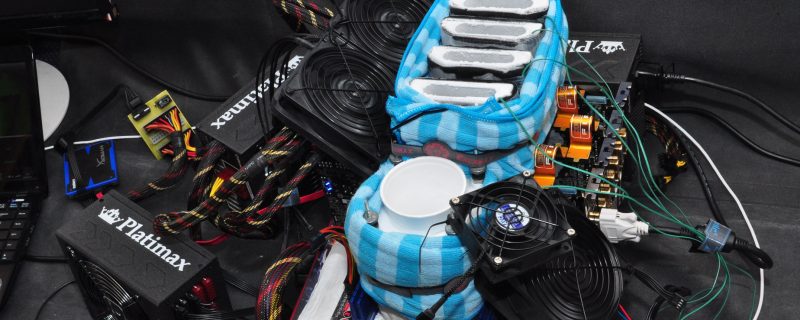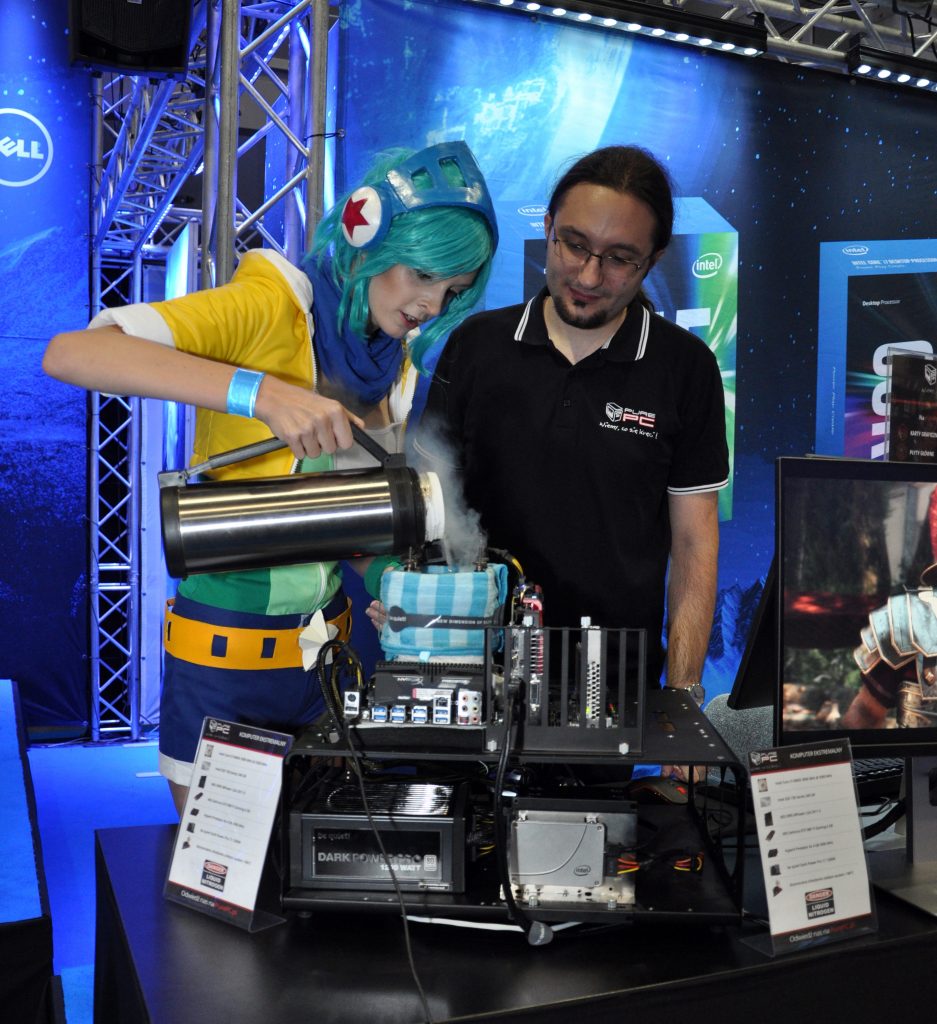
Continued success and growth of recent gigantic e-sport events organized in stadiums and huge venues once again raises an important question. Should e-sport be considered a regular sport? More and more people are saying “yes”. Maybe video gaming will even become an Olympic discipline in the future. But what about a more niche activity, like extreme PC overclocking?
What is extreme overclocking?
In a nutshell, extreme overclocking of PC components in subzero conditions is about pushing your hardware to the absolute maximum of its performance limits in order to get the highest possible scores in benchmarks. It involves software tweaking, hardware modifications such as volt-mods, whatever cooling methods it takes – liquid nitrogen, for example or a phase change unit, as well as supreme know-how about anti-condensation insulation and the platform as a whole – both in terms of hardware and software.
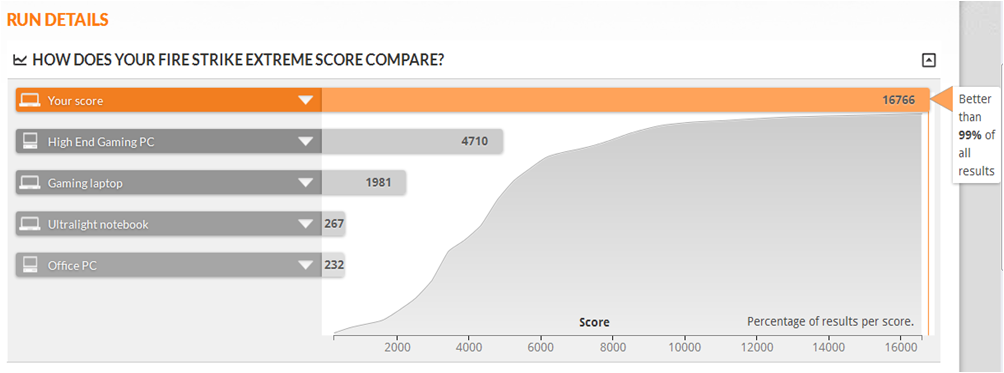 Screenshot from 3DMark.com after uploading my Fire Strike Extreme submission
Screenshot from 3DMark.com after uploading my Fire Strike Extreme submission
After benchmark scores are achieved it is nice to compare them with others. At the beginning of the 21st century there were many online ranking sites to allow you to do just that. However, eventually a Belgian student’s ambitious HWBot.org came on to the scene and rather quickly become the undisputed no. 1 ranking site, sending all the other rankings into the abyss. Now it is acknowledged as the official worldwide ranking site for overclockers and hosts the entire overclocking community on its forum.
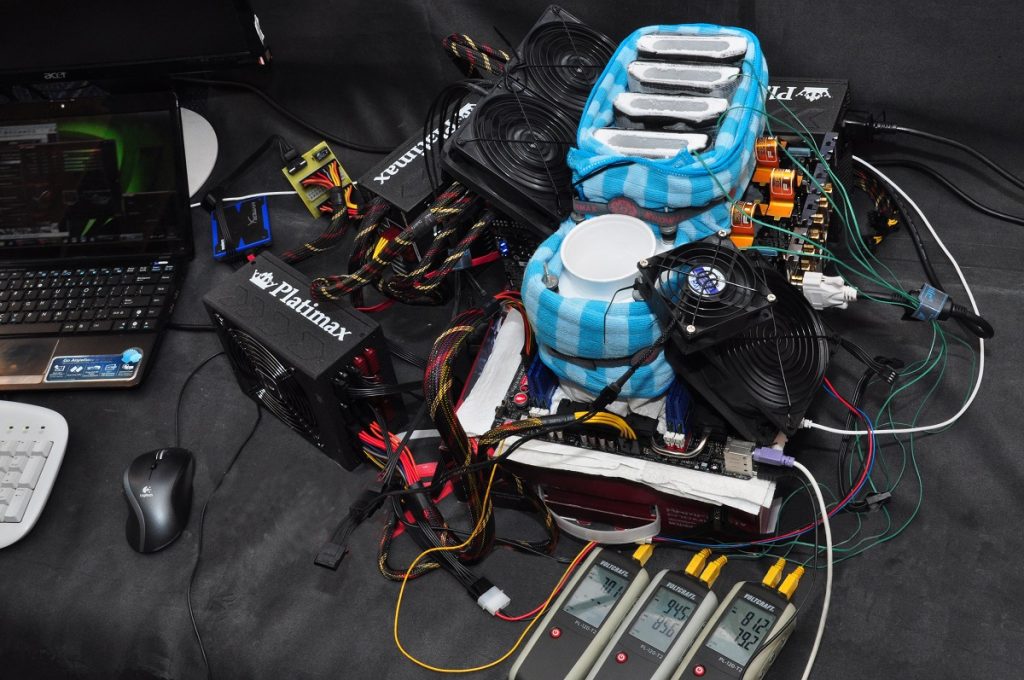 My 4-Way CrossFireX HD 7970 rig, CPU and all the GPUs were cooled with liquid nitrogen.
My 4-Way CrossFireX HD 7970 rig, CPU and all the GPUs were cooled with liquid nitrogen.
The setup had to be powered by three 1000 W power supplies simultaneously
Recently its founder also launched a simplified version of HWBot, which should be friendlier for people who don’t know much about overclocking. He would seem to have noticed that this activity has media potential and could appeal to a wider audience.
What does overclocking have in common with e-sport?
- Getting all the required knowledge on how to compete successfully is a matter of extremely complex and time-consuming research plus learning from your own mistakes. There isn’t a correct or defined way to do it, so everybody has to find his/her own path. Extreme overclocking could be about the fun, the competition or both and it shares quite a lot similarities with e-sport.
- Being competitive requires a lot of skill gained through dedicated practice.
- Getting a sponsor improves your chances of achieving something big.
- Only a very few are capable of doing it as a regular job – for most folks it is a time consuming and quite expensive hobby.
- You really have to know what you are doing – simply buying the best gear won’t make you a master.
- Even as a spectator you have to have a basic knowledge of what it is all about.
- There are competitive online and live events.
- You have to be able to adapt. Games receive new patches that can change the balance of the game-play and new processor architecture and graphics cards that behave differently are released regularly.
And what about the differences? There are a few but I will describe the most important ones.
- Prizes for overclocking are comparatively lower. Usually they don’t even cover the expense of taking part in a contest.
- Overclockers don’t have coaches that help with their training.
- Overclockers mostly work alone.
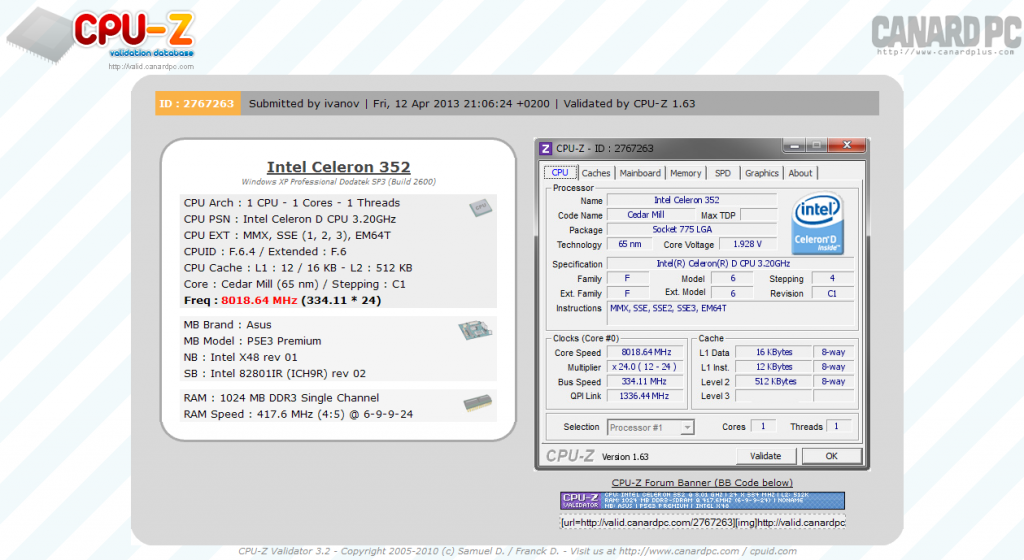 +8 GHz submission made by me
+8 GHz submission made by me
Definition of sport
Let’s get back to the main topic of our considerations, shall we? Wiki’s definition of sport is as follows: “all forms of usually competitive physical activity or games which, through casual or organized participation, aim to use, maintain or improve physical ability and skills while providing enjoyment to participants, and in some cases, entertainment for spectators”.
So surely neither e-sport nor overclocking qualify as ‘sport’ according to this description. Fortunately, later on there is some additional information: “a number of competitive, but non-physical, activities claim recognition as mind sports.” Well, this is way better and both activities can certainly make this claim.
Overclocking certainly provides enjoyment to its participants, and entertainment for spectators. Although from the outside it isn’t very spectacular or dynamic just like chess, which is legitimately considered to be a sport. Once you know what is going on it can be truly fascinating. At the moment it is standard procedure to create streams of the biggest and most important overclocking competitions. It is true to say that the audience numbers aren’t even closely comparable to those for the streams of tournaments for the most popular e-sport teams. But as I said, it is quite a niche activity. And does the smaller amount of spectators make it less valuable? People who are into this put a lot of effort into improving their skills and sometimes they have to make really hard choices. It is not uncommon for an overclocker to have to deal with family problems due to its demands.
Me with cosplayer Ruru pouring liquid nitrogen for overclocking a Core i7-5960X at the Poznan Game Arena 2015 event
Stars, celebrities?
Some overclockers have the opportunity to become in-house overclockers for companies that produce motherboards and/or graphics cards. However, this often seriously affects their participation in contests organized by competitive companies.
To become in-house overclocker you surely have to be very talented and therefore well-known. After becoming an in-house overclocker your name is shown on the brand’s official promo materials as well as on the packaging of some of their products. Unfortunately, exposure through the mainstream media is not usually significant.
Some other overclockers have become recognizable solely thanks to their hard work on HWBot. But this popularity is really just within the overclocking community. OC still lacks awareness and good promotion among standard PC users.
In my opinion, it is, sadly, quite hard to become really well-known thanks to overclocking. The fame of even the biggest OC personalities is so much smaller even to well-known e-sport players.
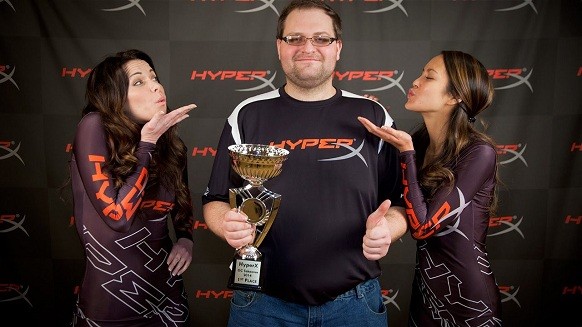 Xtreme Addict, Without doubt the best Polish overclocker and one of the top professional overclockers in the world
Xtreme Addict, Without doubt the best Polish overclocker and one of the top professional overclockers in the world
In my admittedly biased opinion, overclocking certainly deserves to be considered a sport. However, I will leave the final judgment to you. 😉





